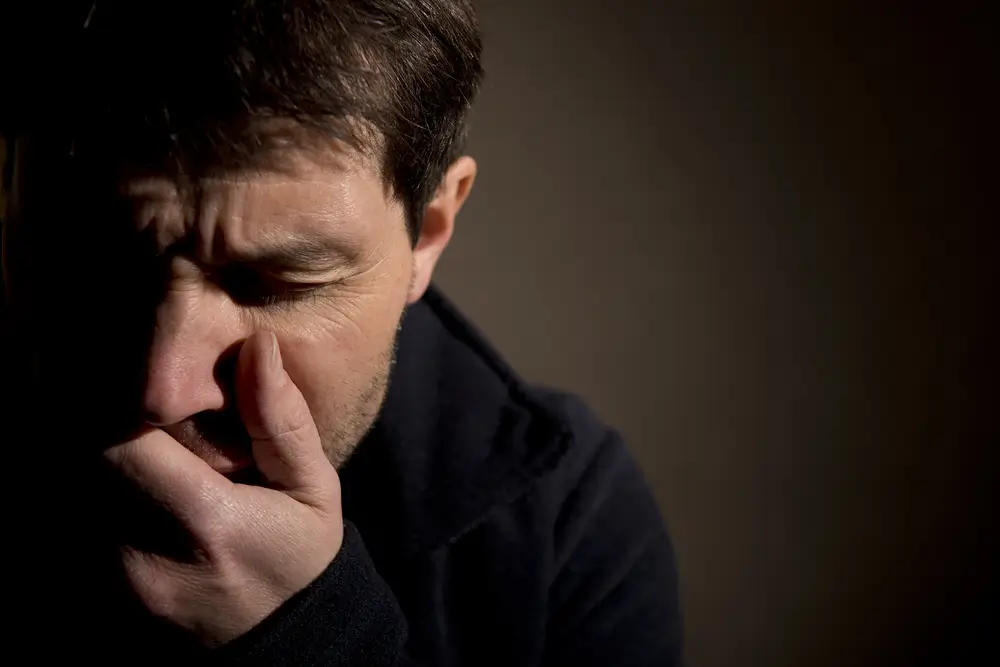Trauma-informed therapy is an approach to mental health treatment that acknowledges the harm that trauma can cause and how it can be reflected in a person’s psychological state. This type of therapy focuses on uncovering the underlying traumas that may be causing PTSD and giving individuals the skills they need to better manage their symptoms.
This article will explain trauma-informed therapy and how it can be applied to treat PTSD, the effectiveness of this therapy, what to expect during a session, and much more.
Trauma-informed therapy is a non-judgmental approach that uses evidence-based techniques to help individuals process and cope with traumatic experiences.
PTSD Explained
Post-traumatic stress disorder (PTSD) is a complex and debilitating psychological condition that may arise after being exposed to a traumatic incident. Such events could be natural disasters, war, sexual and physical attacks, car crashes, and other life-threatening events. PTSD is identified as an anxiety disorder and is demonstrated by signs that can drastically impact an individual’s daily functioning.

According to the Diagnostic and Statistical Manual of Mental Disorders (DSM-5), Post-traumatic Stress Disorder (PTSD) can be identified based on the symptoms it generates. These symptoms can be classified into four distinct groups:
Intrusive
Intrusive symptoms involve repeated, troubling recollections of the traumatic event, including nightmares and flashbacks. These manifestations can make individuals experience as if they are undergoing the traumatic incident once again.
Avoidance
Those who suffer from PTSD may try to stay away from anything that brings back memories of the upsetting incident, such as people, places, or activities. Additionally, they may try to abstain from discussing or thinking about the event.
Changes in Mood
People with PTSD can experience a shift in their mood and thinking. These changes can range from feeling disconnected, remorseful, or embarrassed to struggling to recall certain details of the event that caused the trauma.
Hyperarousal
Symptoms of hyperarousal involve a feeling of uneasiness, agitation, or fear of being surprised. People who experience this might have difficulty falling asleep, be in a state of constant tension, or be unable to focus on one task.
PTSD can be a major disruption in a person’s regular life and can even cause issues in their relationships, job, and other aspects of their life. It can show up right away following a traumatic event, or it can take a while to appear, possibly months or even years. Studies have discovered a link between PTSD and changes to the brain, specifically in the parts related to handling and controlling feelings like the hippocampus, amygdala, and prefrontal cortex.
Download Our FREE eBook
We encourage you to download our informational eBook to learn more about our life skills & career development program track offered at Launch Centers

What is Trauma-Informed Therapy?
Trauma-informed therapy is a type of mental health treatment that takes into consideration the long-term effects of traumatic experiences on a person’s well-being. This method of therapy is distinct from other approaches as it considers a person’s past trauma history and how it could be influencing their current mental health issues, such as PTSD, depression, and anxiety. It is based on the understanding that the effects of trauma can have a powerful influence on a person’s life.
Trauma-informed therapy seeks to provide a secure and nurturing atmosphere in which individuals can process their trauma. This type of therapy places emphasis on establishing a sense of security and faith in the therapeutic relationship, which is essential for those who have gone through a traumatic event. The therapist works with the individual to confirm and validate their experiences, enable them to comprehend what has taken place, and form strategies to deal with their symptoms.
Along with managing the patient’s symptoms, trauma-informed therapy also concentrates on helping individuals strengthen their resilience, self-confidence, and general health. It enables them to acquire the abilities and resources they need to tackle the everyday struggles they face, and to construct a notion of autonomy and self-confidence.

Five Principles of Trauma-Informed Therapy
There are five main principles that should guide trauma-informed therapy, including safety, trustworthiness, choice, collaboration, and empowerment. These five principles provide a foundation for understanding how trauma affects individuals and create a framework for developing effective treatment plans. By understanding the five principles of trauma-informed therapy, practitioners can create an environment that helps individuals heal from their trauma and move toward recovery.
Safety
Creating a safe space for clients to process their trauma experiences is a key component of any mental health treatment. Safety helps to create an environment where individuals can feel comfortable discussing their experiences without fear or judgment. This can be achieved through clear boundaries, respect for privacy and confidentiality, and engaging in trauma-informed practices that ensure clients are heard and respected. Safety is essential for creating a physically and emotionally safe space that allows clients to process their traumatic experiences and begin healing.
Trust
Patients must be able to trust their therapist in order for the therapy to be successful. Trustworthiness is a key component of building a trusting relationship with patients. Therefore, therapists should strive to be transparent, consistent, and reliable during each session in order to foster a trusting bond and maintain trustworthiness. This will ensure that the patient feels comfortable enough to open up during their therapy sessions and benefit from the therapeutic process.
Choice
Giving clients the choice to make decisions about their treatment and recovery is an important aspect of the therapeutic process. It allows them to take ownership of their own healing and to direct their course of action. This can be especially empowering, as it encourages them to make choices based on their personal values, experiences, and preferences. Allowing clients to exercise their right to choose gives them a sense of autonomy and control over their own journey of healing and recovery.
Collaboration
Collaboration is a key factor in providing effective mental health services and is essential to successful clinical practice. Working together with clients to develop a tailored treatment plan which meets their specific needs is an example of the value of collaboration. It ensures that the best possible care is provided, with the client’s individual needs and goals at the center of the process.
Empowerment
By helping clients to recognize and build on their strengths, counselors can assist them in taking control of their lives and recovering from trauma. This process is known as empowerment, which is a powerful tool for clients to experience greater autonomy and self-determination. Through counseling, clients can gain a better understanding of their own strengths, weaknesses and resources that can help them reach their goals without relying solely on external sources.
What is The Goal of Trauma-Informed Therapy?
Trauma-informed therapy has the primary goal of assisting people who have gone through a traumatic event to comprehend and process what they have experienced. Additionally, this therapy is intended to cultivate coping skills and resilience, in order to allow them to move on. This strategy works to empower the person, not to look at them as having a mental disorder, and to create an atmosphere of security and trust in the therapeutic connection. The desired result is to help the individual heal from the effects of the trauma and to improve their mental health and well-being.
Is Trauma-Informed Therapy Effective?
Research has revealed that trauma-focused therapy is highly effective and can be helpful for people who have suffered trauma. This method of treatment recognizes the impact of the trauma on the mental and physical state of the individual and incorporates strategies to address these repercussions into the therapy. Studies have indicated that trauma-informed therapy can lessen the symptoms of PTSD and other mental health issues, as well as enhance overall functioning and quality of life. Nevertheless, it is essential to bear in mind that not everyone will respond to the same type of therapy and it is vital to work with a qualified therapist to create an individualized program of treatment.

Benefits of Trauma-Informed Therapy in Treating PTSD
Trauma-informed therapy offers numerous advantages in treating PTSD. Most significantly, this type of therapy takes into account the individual circumstances of people who have encountered trauma. This is critical because PTSD is a multifaceted condition that can present differently for various individuals.
Additionally, trauma-informed therapy emphasizes the development of security and dependability between the client and the specialist. This is essential for people with PTSD, who may find it hard to be confident in other people or feel secure in certain circumstances. By creating a nurturing and non-judgmental atmosphere, the therapist can help the client feel more at ease when discussing their traumatic experiences and working through their symptoms.
Trauma-informed therapy also encourages individuals to prioritize self-care and cultivate resilience. It provides people with the tools and techniques they need to regulate their symptoms and respond to challenging situations. This type of approach can lead to a more secure and steady lifestyle, lessening the probability of PTSD recurring.
What To Expect During Trauma-Informed Therapy
At the beginning of a PTSD counseling session, the therapist will usually carry out a detailed evaluation of the person’s symptoms, past experiences, and current state. This will involve inquiries about the traumatic experience or experiences, as well as any indications the individual has been displaying, such as flashbacks, nightmares, and avoidance behaviors. The therapist may also investigate the individual’s medical and psychiatric history, and any treatments or medications they are currently undergoing. The therapist will explain their therapy approach and provide a synopsis of the treatment procedure. The therapist will make sure the person is informed about the potential risks and benefits of the therapy, and that the client is confident with the method.
The therapist will collaborate with the client to devise treatment goals and a treatment plan. This includes deploying methods proved to be effective, such as cognitive-behavioral therapy (CBT) and eye movement desensitization and reprocessing (EMDR), to enable the individual to make sense of their traumatic circumstances. Then, the therapist will teach the person about PTSD and its symptoms and explain self-care and coping techniques to be used outside of therapy sessions. It is important to remember that the initial session may not include talking about the traumatic incident directly and that the therapist will work with the individual to create an appropriate atmosphere to deal with the traumatic event.
Trauma-Informed Therapy in Los Angeles, CA
Launch Centers in Los Angeles is dedicated to providing quality trauma-informed therapy for individuals struggling with PTSD. Our specialized mental health services and diverse treatment programs are tailored to each individual’s unique needs, and our experienced professionals are here to provide support every step of the way.
With Launch Centers, you can rest assured that you’re receiving the best quality PTSD treatment in Los Angeles. Don’t hesitate to reach out to us if you need help – we’re here to ensure that you reach your full potential. Call us today to learn more.






